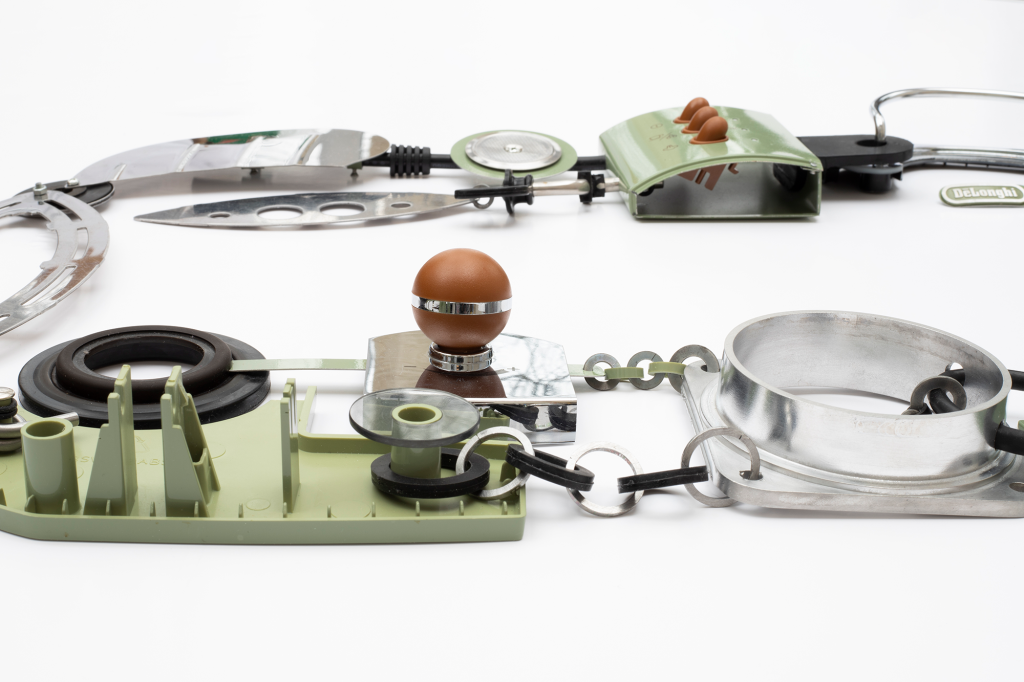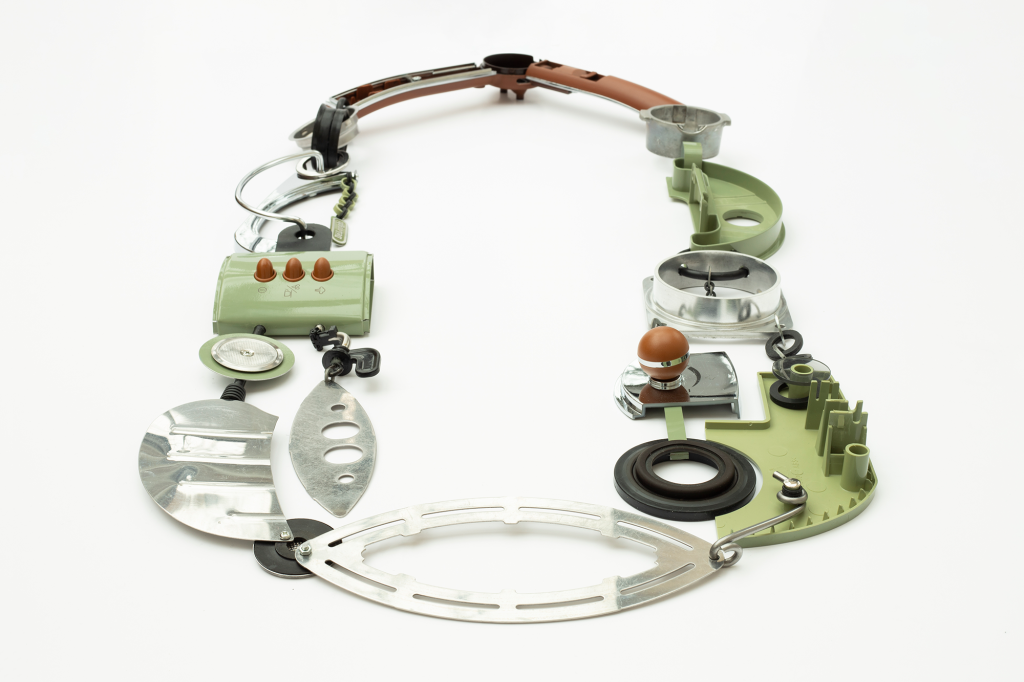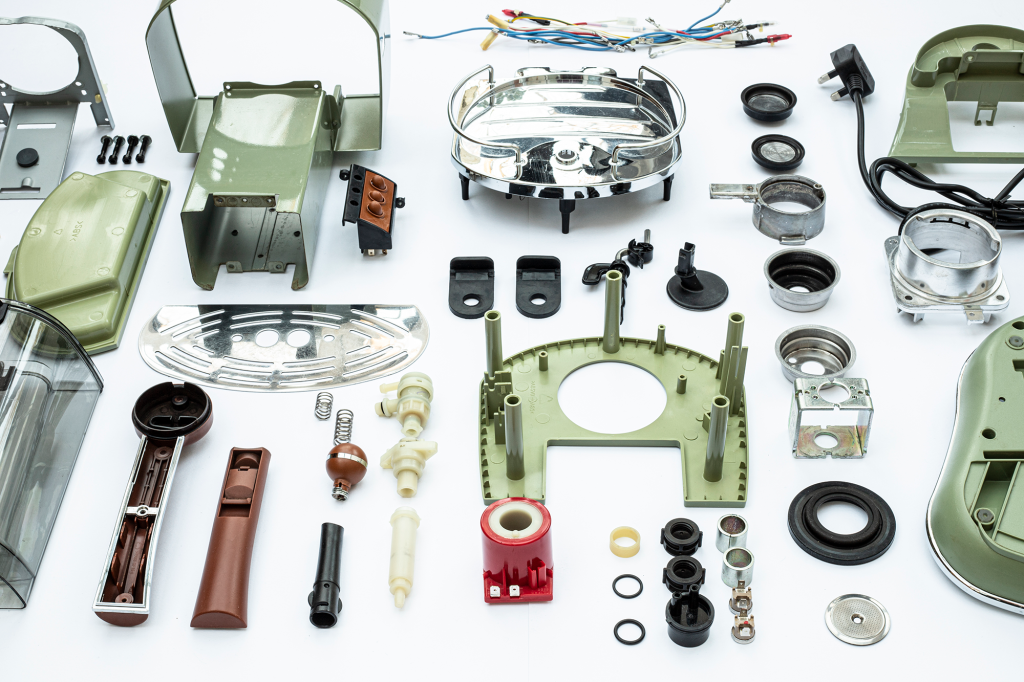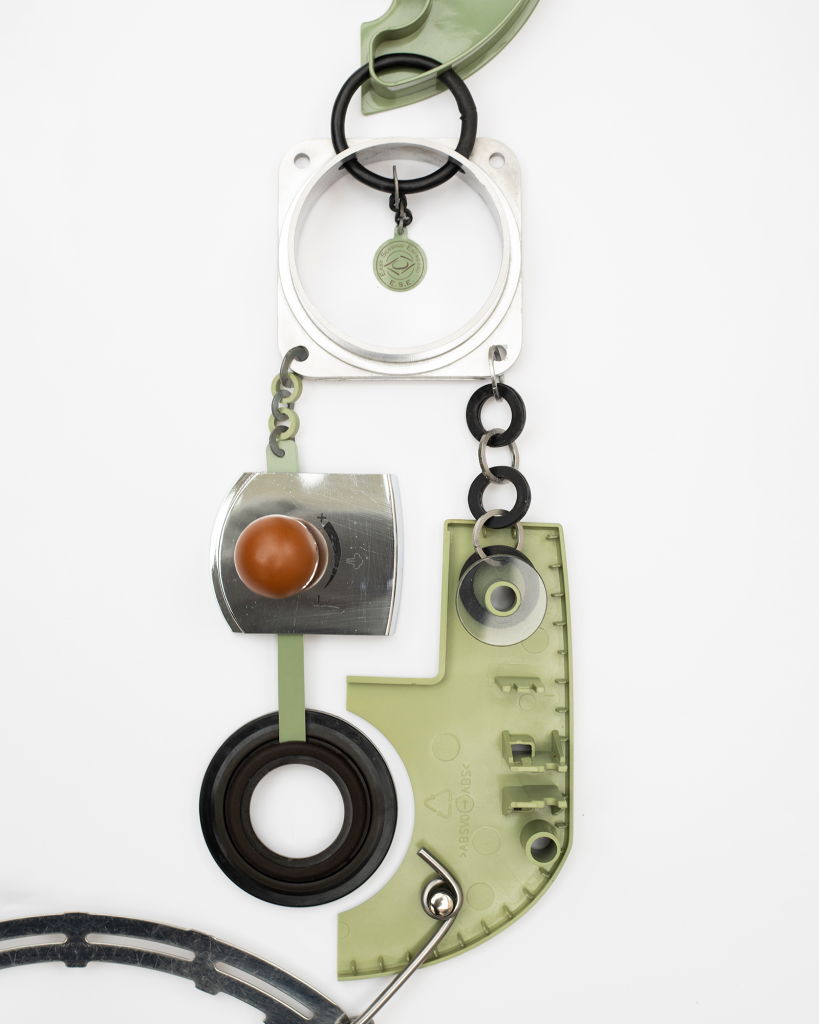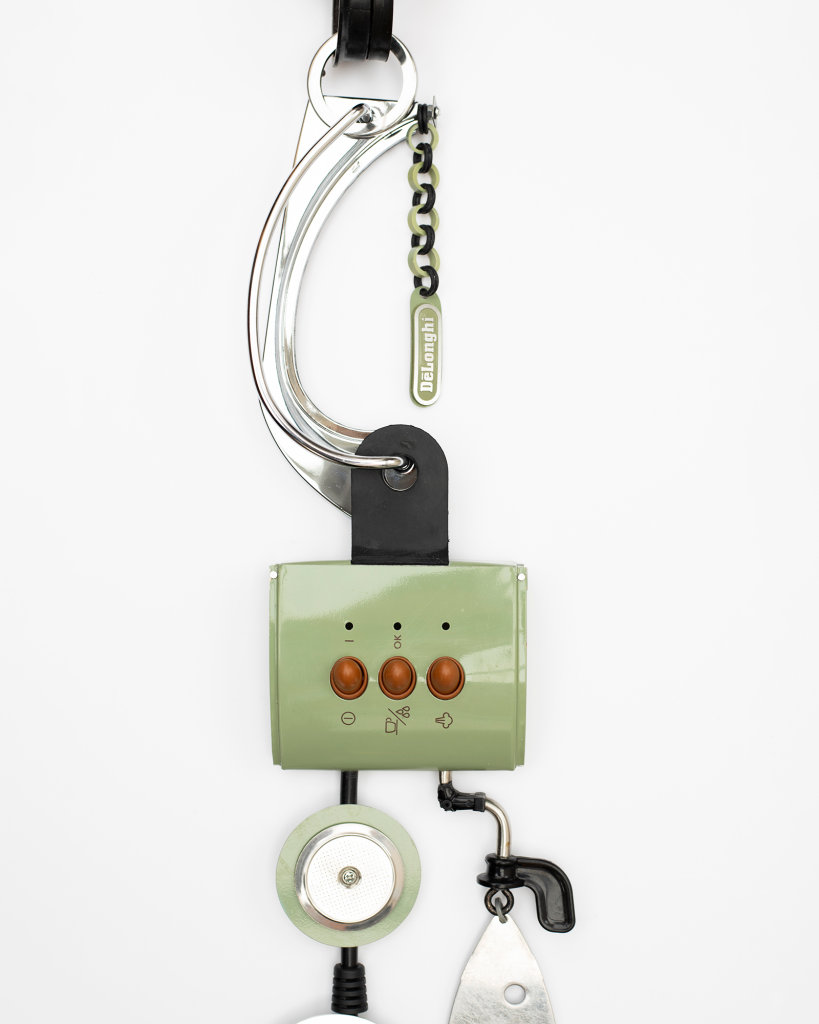Over the last year, we have acquired several artefacts that discuss how the impact of the pandemic and wider socio-political subjects have inspired the creation of some remarkable works of art, craft and design that reflect these times. Sarah Rothwell, Senior Curator of Modern & Contemporary Design, concludes our mini-series with a unique work of sculptural jewellery acquired for the nation. Created from something unusual, it’s probably more at home on our kitchen counters. This piece draws attention to sustainable living, the impact consumer consumption has had on the planet, and on our emotional wellbeing during this notable period in history.
As we neared the end of the first Lockdown of 2020, its impact had taken a recognisable toll on the nation’s wellbeing. COVID-19 and the resulting long periods spent apart from our families and friends were difficult. Shared moments, such as having a cup of coffee or enjoying a glass of wine in the evening with those we care about, had become an uncertain luxury that we craved in our isolated worlds.
Sometimes we tried to replicate these encounters through a screen (big shout out to my sister and her wife for the countless family quizzes they hosted online that kept me from feeling less alone). Or we filled our homes with objects that we didn’t necessarily need, to plug that emotional gap. We started to see more of the Amazon delivery drivers than we did of our own loved ones! And as I have already discussed in previous posts, as with other areas of our changed lives over the last year and a half, this all became reflected within the creative output of many artists and makers.
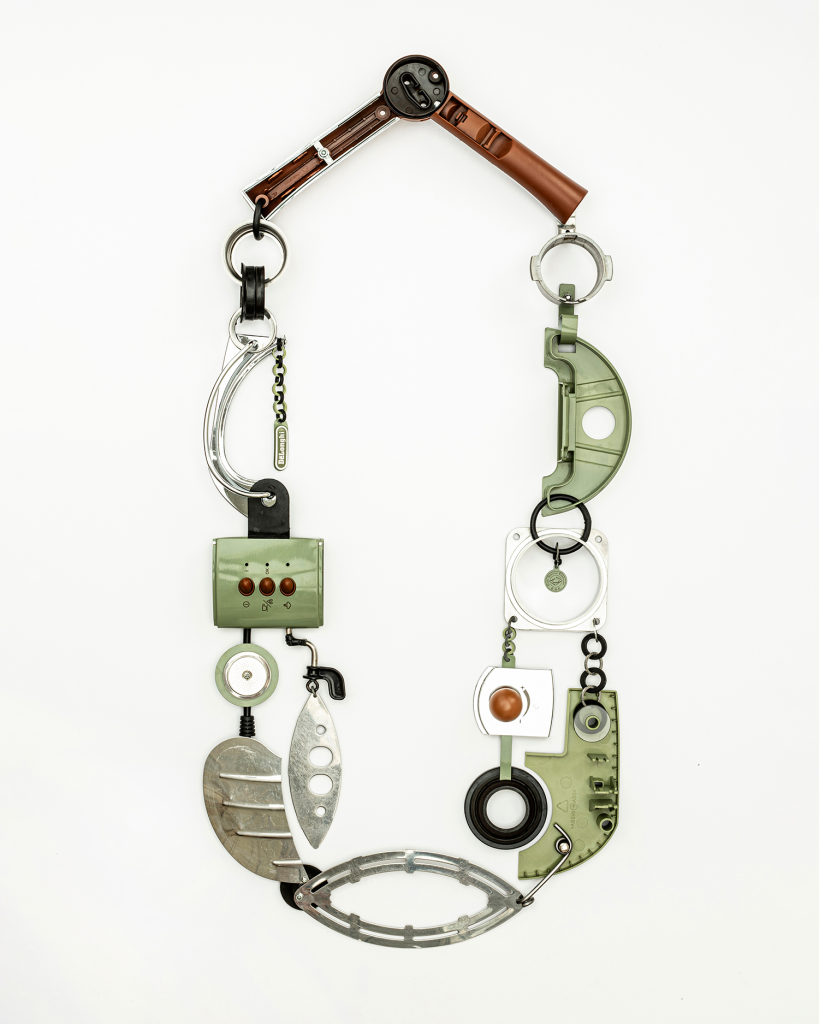
The next work I would like to highlight adopted the narrative of isolation and lack of social interaction. Created during the first Lockdown in the UK by the London based artist jeweller Veronika Fabian, Love Machine is made from her own coffee maker. The piece explores the tension many of us experienced with the loss of social interaction, and the solace we can find in everyday routines (when our normal lives are so far removed) like making and sharing a cup of coffee.
Veronika, whose former training as a financial analyst informs her practice, uses jewellery and our relationship with adornment, to investigate the impact of contemporary capitalism on our daily lives and how it informs personal identity. Love Machine sits within her ongoing project You, me and your stuff, in which she reconstructs everyday objects that have been identified as being important in someone’s life. Her aim is to stimulate a dialogue on the necessity of the things we own, how these then become signifiers of identity, and why we cherish them so much over other more necessary things we need to survive.
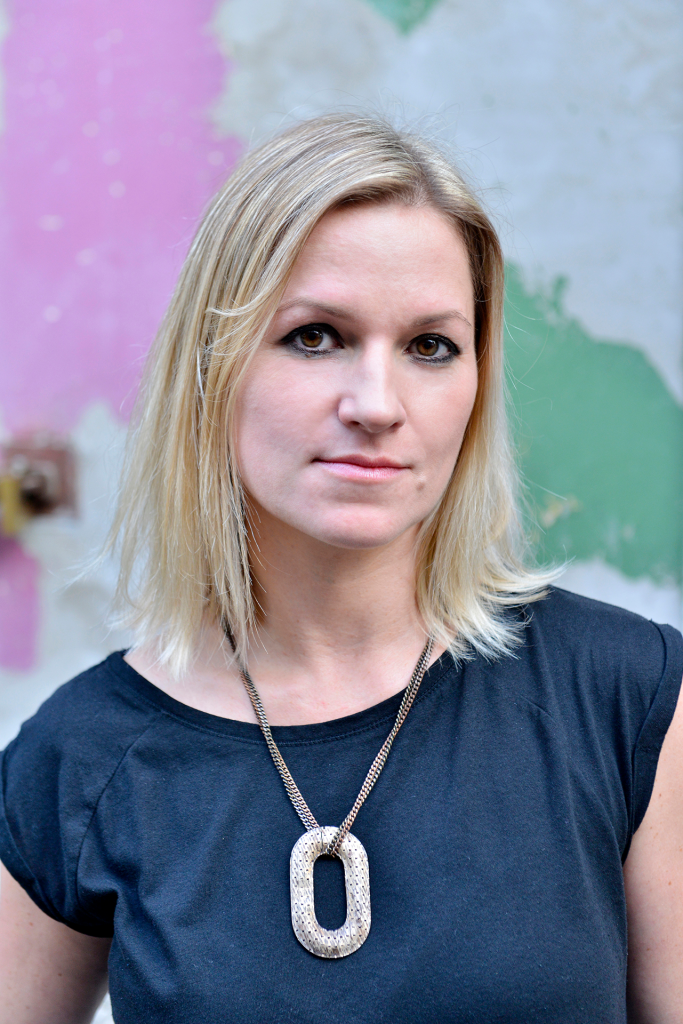
When Veronika conceived the project, she asked individuals to name their most essential possessions that they felt best represented themselves. Participants submitted everything from a Chanel perfume bottle to a personally customised biker jacket. Veronika then turned these into statement necklaces. Or, as she sees them, artefacts of individuality.
However, her project became even more pertinent during the last year, as the objects she focused on became more associated with building and maintaining social relationships. Whilst also reflecting on the burden (financial and otherwise) we have placed upon ourselves by filling our homes with machines and objects in an attempt to replicate and replace the experiences we encountered elsewhere.
“The current pandemic accelerated the process of virtualisation, drawing a sharper contrast between the online and offline world. The veil of this locked down existence dulls reality to a level that people crave traditional, good old-fashioned meetings in the flesh. The lightness of the online every-days alienates people and leaves them longing for something more substantial, with more depth and intimacy. The value of offline contacts gains new appreciation, and as personality converts into a scarce alternative, it is increasingly becoming a luxury.
Also, to me the emphasis is on making the viewers think about what the really important things in our lives are and whether or not we really need all those objects we buy. We create 2 billion tons of solid waste annually, even if we would create all of our things from recycled material that wouldn’t be enough in my opinion, we’ll have to make much more rational choices during our consumption as well.”
Veronika Fabian, 2021
The scale of Love Machine is imposing: it’s a sculpture that covers the entire torso. If you don’t believe me, check out Galerie Marzee Director, Marie-José van den Hout, modelling the piece wonderfully below. In its transformation by Veronika, this jewel has become a symbolic image of the period we continue to live through. It speaks of the financial burden some of us now face and are weighed down by. As well as the waste we create through the acquisition and accumulation of such commodities that have an environmental and ecological impact upon the planet, and consequently affect climate change.
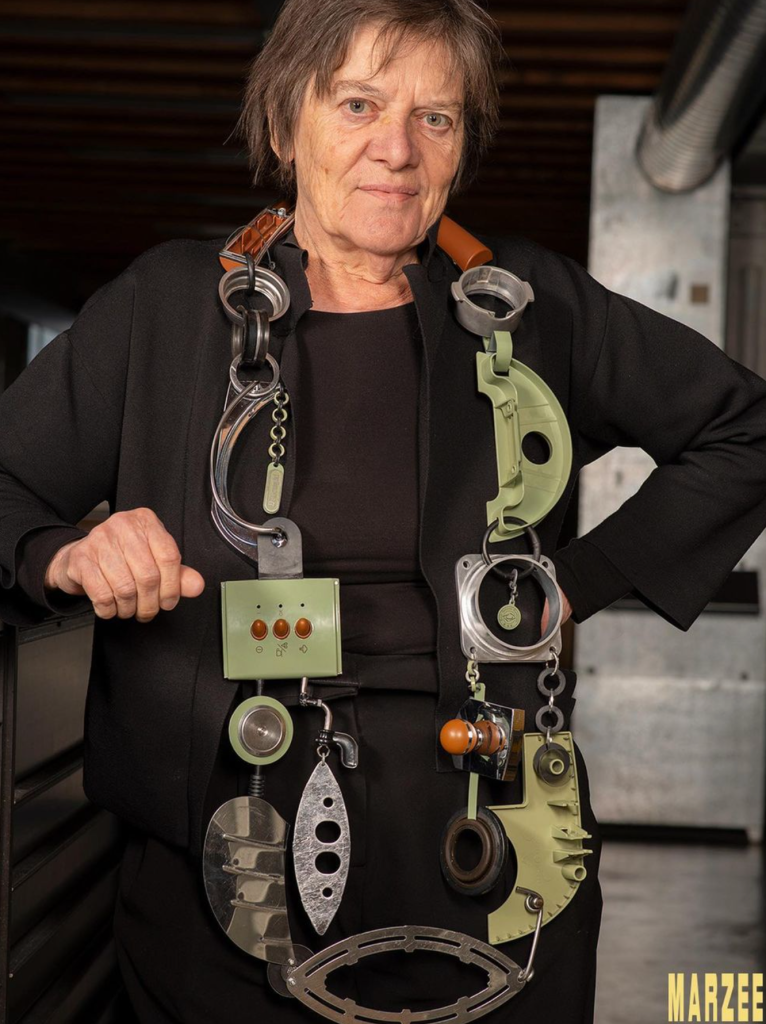
And in terms of wellbeing, the piece speaks to the isolation we feel and our very human need for companionship. It reminds us of the importance of everyday social interaction and how these moments are now precious to us all, after having been denied them for so long.
The works of art, craft and design that I have highlighted in the series are unique artistic and design expressions of this notable period in history as seen through the eyes of their makers. They are artefacts discussing the socio-political implications we have all faced and experienced and the emotional impact they have had on our wellbeing. They’ve also drawn attention to discussions around climate change and sustainable living. And now they are part of the fabric of artefacts collected by National Museums Scotland, that will tell a story for generations to come.
Cup of coffee, anyone?

